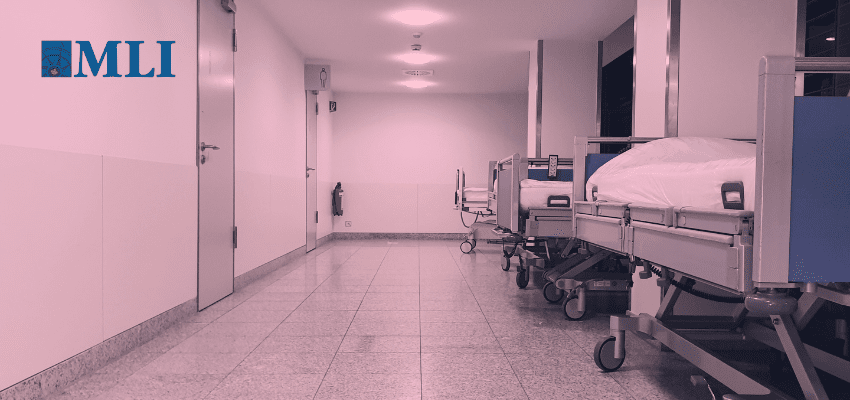This article was originally published in CapX, a publication out of the UK-based Centre for Policy Studies.
By Ramona Coelho, November 12, 2024
It was meant to be a last resort – an act of ‘compassion’ to ease the suffering of the terminally ill. Instead, ‘medical assistance in dying’ (MAID) in Canada has exploded. Even worse, it’s being suggested to vulnerable disabled and mentally ill patients – many of whom could be treated with other therapies or medications.
To say Canada is a cautionary tale for the United Kingdom is an understatement. Canada has the fastest-growing MAID programme globally. Since legalisation in 2016, more than 60,000 MAID deaths have been recorded, with more than 13,000 in 2022 alone and estimates exceeding 15,000 MAID deaths for 2023.
In February 2024, the Canadian Human Rights Commission expressed deep concern over reports that people with disabilities are choosing MAID because they lack access to the essential services and supports needed to live with dignity.
When Canada legalised assisted suicide and euthanasia in 2016, it was intended as an exceptional procedure. It was restricted to consenting adults experiencing intolerable suffering in the end-of-life context. Since then, lobbying groups have pushed for widespread access and broader eligibility. In 2021, new legislation removed safeguards for those accessing MAID in the end-of-life context (now called Track 1), and a new Track 2 was introduced for adults with physical disabilities who are not dying. MAID legislation is set to expand further, with eligibility for those with a sole medical condition of mental illness in 2027. In 2023, a parliamentary committee recommended expanding MAID to children and adults who signed advance directives for the procedure but are now incapacitated.
Canada’s healthcare system, like many others, has a well-documented history of bias among healthcare providers, leading to adverse health outcomes. This is particularly true for Canada’s Indigenous peoples. Many Indigenous leaders have voiced concerns over MAID, stating: ‘Our population is vulnerable to discrimination and coercion in the healthcare system and should be protected against unsolicited counsel regarding MAID.’
Similarly, the Disability Filibuster, a national grassroots disability initiative, is concerned that MAID may be presented to disabled individuals at their most vulnerable moments, making them more fearful of seeking medical care and increasing the frequency of brief, fleeting thoughts of suicide and the risks of choosing death. The situation is so serious that a coalition of disability groups launched a Charter challenge this past month, arguing MAID for people with disabilities violates their equality and security rights.
Unfortunately, these well-founded concerns, along with numerous reports of abuse, have been systematically ignored and disparaged. As MAID deaths continue to rise, the urgency of addressing abuses is becoming impossible to overlook. The Chief Coroner of Ontario, who has a legislative duty for monitoring and oversight of MAID deaths, set up a Medical Assistance in Dying Death Review Committee – of which I am a member – to review MAID deaths to assist in evaluating public safety concerns. On October 16, 2024, our first report was published.
In one case review, a man’s consulting psychiatrist suggested he consider MAID as an option – an example of potential undue influence. Although the man had inflammatory bowel disease, he struggled with untreated addictions, social isolation and mental health issues that were largely overlooked, as were his family’s concerns.
In another case, a woman with multiple chemical sensitivities opted for MAID due to suffering caused by isolation and her housing situation, a tiny hypoallergenic space.
The report also underscores concerning trends among Track 2 patients – individuals with disabilities who are not dying but are opting for MAID. Initial findings indicate that a significant portion of these cases – 29% – involve individuals living in poverty. The majority are under 60 years of age, and women make up a larger share (61%) compared to men. These demographics are generally more prone to suicidal tendencies, but overwhelmingly respond well to suicide prevention efforts.
Additionally, these individuals were less likely to be offered disability support, mental health services, therapy or community-based solutions. Their care was primarily focused on drug treatments.
These emerging trends are troubling.
As a physician who has served marginalised patients for 17 years, I have witnessed how a lack of care, discrimination and social isolation can intensify demoralisation and despair. Conversely, care, support, assistance in navigating healthcare systems, therapy and time can alleviate suffering, even when healing requires resources and time.
Canada’s experience with MAID should serve as a stark warning to the UK as it considers adopting an assisted dying framework.
Dr. Ramona Coelho is a family physician whose practice largely serves marginalised persons in London, Canada. She is a senior fellow at the Macdonald-Laurier Institute and co-editor of the upcoming book, ‘Unravelling MAiD in Canada: Euthanasia and Assisted Suicide as Medical Care’, McGill-Queen’s University Press, 2025.






